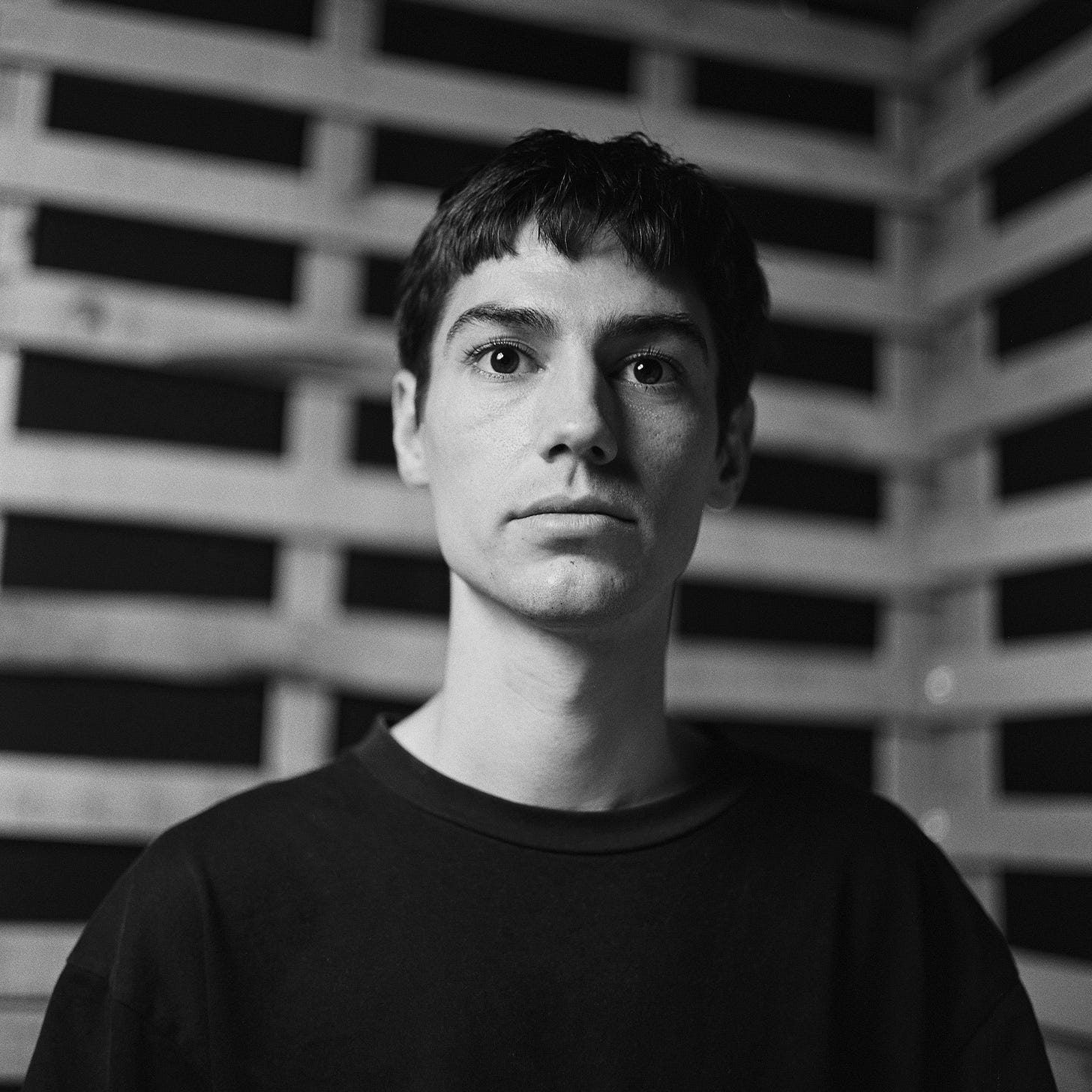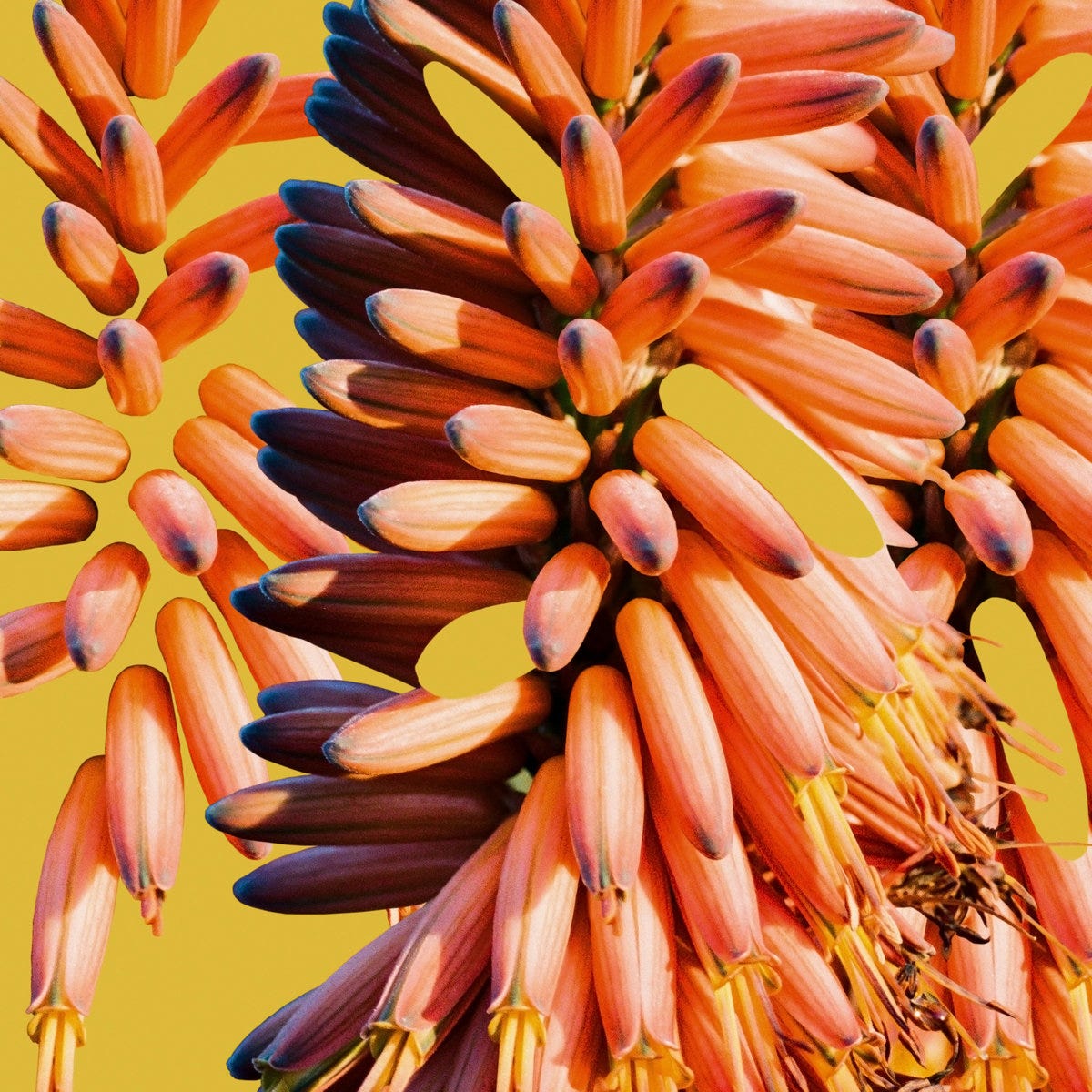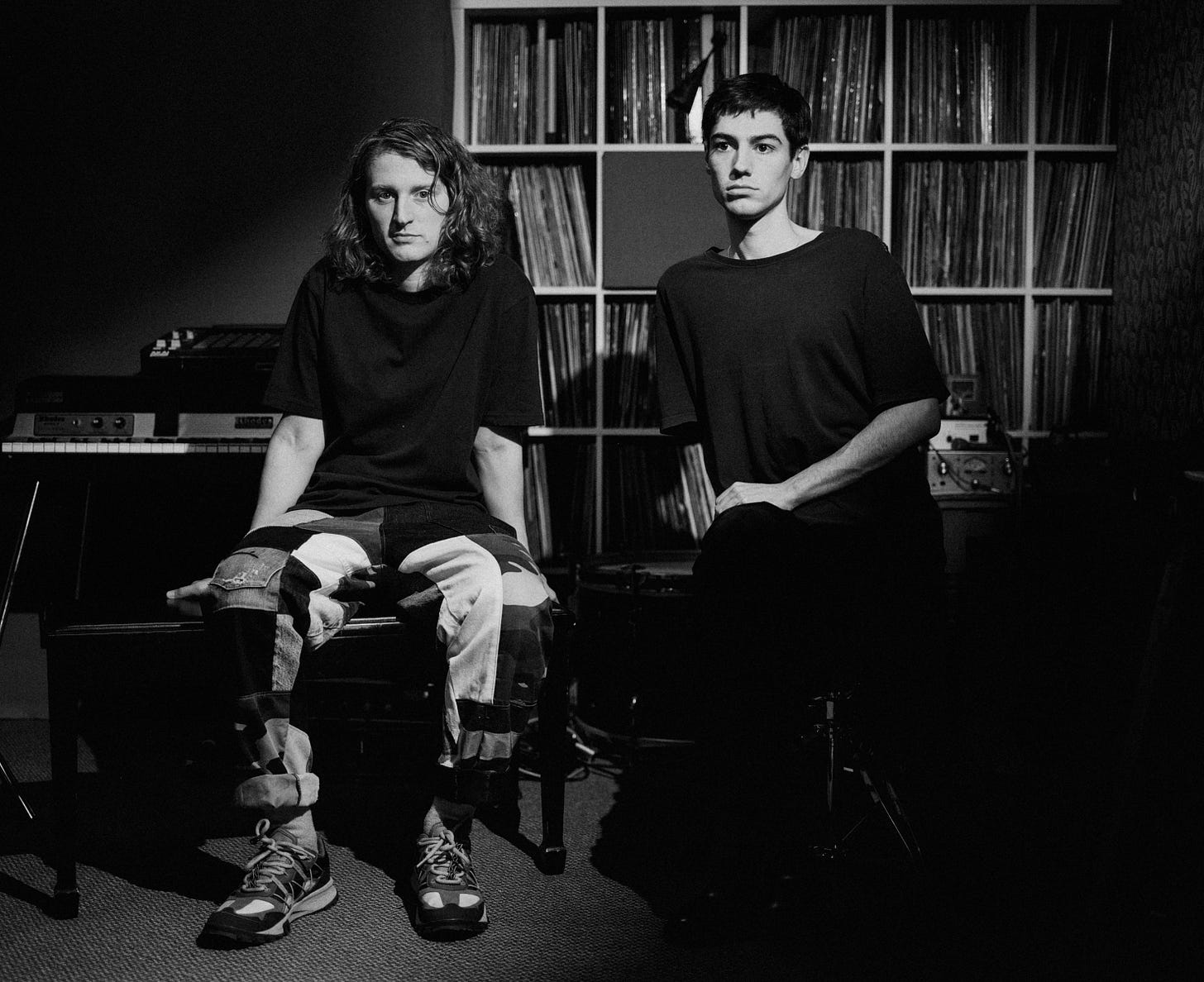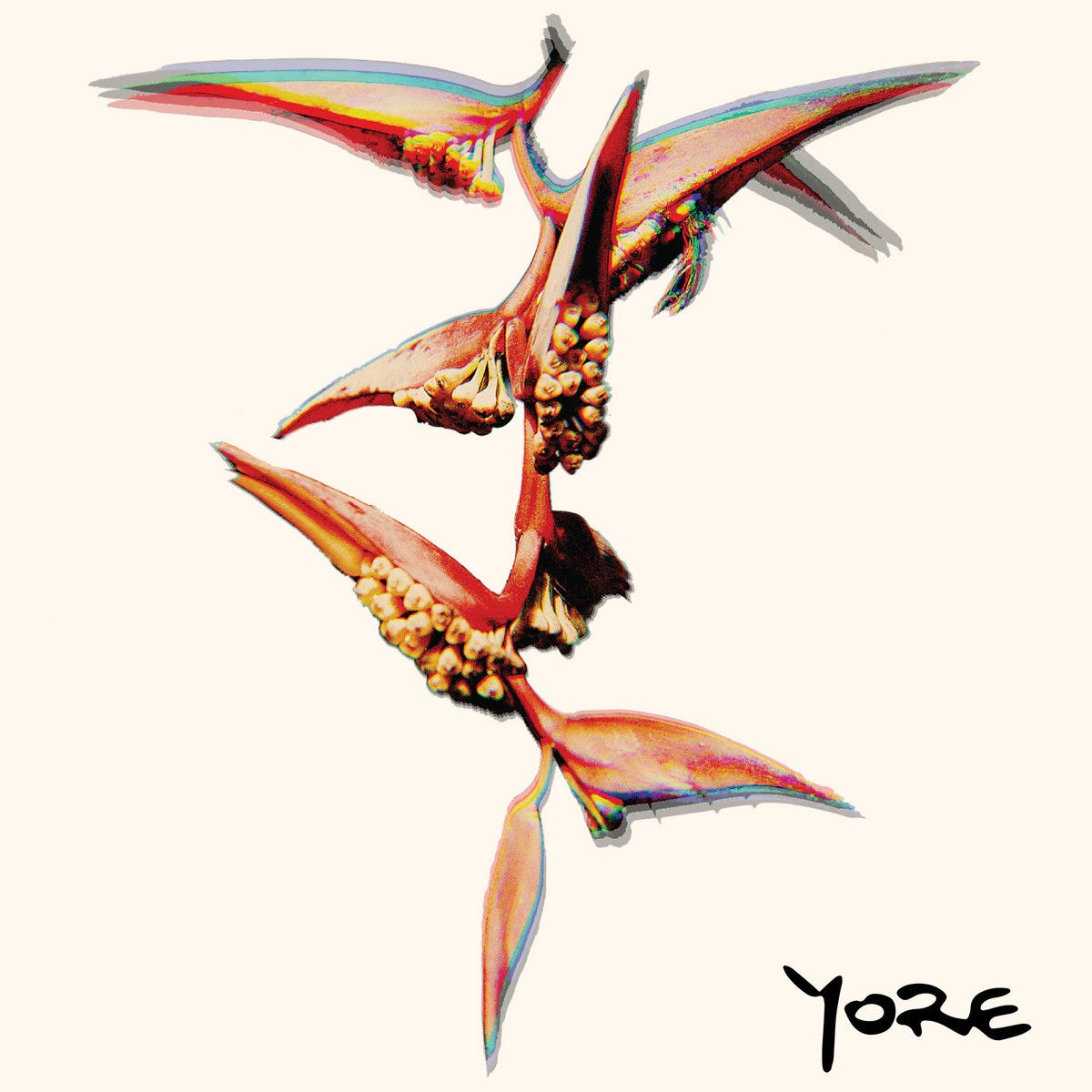Q&A: Charlie Hill
Discussing drumming, production and electronic music with Middle Name Records latest artist.
Charlie Hill, Photo Credit: Sampology
Selected Works is a regular newsletter by the Te Whanganui-a-Tara, Aotearoa (Wellington, New Zealand) based freelance music journalist, broadcaster, copywriter, and sometimes DJ Martyn Pepperell. Yes, that’s me. Most weeks, Selected Works consists of a recap of what I’ve been doing lately and some of what I’ve been listening to and reading, paired with film photographs I’ve taken + some bonuses. All of that said, sometimes it takes completely different forms.
A trained jazz drummer, Charlie Hill got his start in the Meanjin (Brisbane) live music scene in 2015 while studying at the Queensland Conservatorium of Music. After completing his degree in 2019, he spent several months losing himself on nightclub dancefloors across Europe before returning home on the eve of the global pandemic. Over the following months, he began teaching himself the fundamentals of electronic music production, honing his craft during the listless ennui and uncertainty of Australia’s lockdown years.
In May this year, Charlie released his first EP, Galaxy, a collaboration with fellow Meanjin dweller Sam Poggioli, aka Sampology, through Sam’s own Middle Name Records imprint. On the 15th of September 2023, Charlie is keeping the pressure up with his debut solo EP Yore, again released through Middle Name Records.
Recorded between 2019 and 2022, Yore lives and breathes in the slipstreams between the vibrancy of jazz-funk, neo-soul and downbeat and the machine beats of house, techno and broken beat. Across its six tracks, Hill combines recordings of himself drumming with programmed rhythms, synthesisers, and a painstakingly curated personal library of samples of friends and family playing instruments and singing. From the modern trip-hop dreamscapes of ‘A Space For A Space’ to the syncopated rhythms and rubbery bassline bounce of ‘Yemlaad’, the EP is an embarrassment of riches from a bold and intuitive new talent.
Near the end of August, I jumped on Zoom with Charlie to talk about his journey as a drummer, percussionist and electronic producer and find out where he’s headed next.
Martyn Pepperell: Talk to me about your journey as a drummer and a percussionist.
Charlie Hill: Yeah, totally. I was probably fourteen, so grade nine or so. I had this friend in high school who was a drummer. He was really into heavy metal. Heavy, heavy stuff. He liked playing blast beats as fast as he could. It wasn’t my thing, but I could see the artistry in it. At that moment, I was like, damn, I’ve gotta start drumming. I think having him around me at school it just took off from there. My mum got me a teacher at some point, and once I saw him play, it was over. I just started going hard.
The intensity of heavy metal drumming is compelling, right?
Yeah, but it also wasn’t the music I wanted to hear then. So, I knew I needed to play to hear what I wanted, which was probably American hip-hop. But I went through a heavy metal phase, and I was listening to Parkway Drive and had a little bit of a classic Australian emo phase. Heavy metal and emo weren’t something I’d always chuck on, but when I did, it made me want to run around in circles and punch things. It’s just so energetic.
When did you start learning to play the drums in a hip-hop style or something closer to what you wanted to hear?
To put things in context, I played the piano before I played the drums but didn’t take it very seriously, so I don’t really bring it up. I’m from a musical family, so I was constantly around music. I think the turning point was when I started listening to rhythm sections. I was in awe of the relationship between drums and bass and what it feels like to groove really well. I think that changed my perspective on music a bit. Before, I would have felt how good a groove feels, but I didn’t understand it until I had more knowledge of the drums.
Yeah. You start paying attention to specific rhythm sections and the like, and this sort of thinking can quickly become a pipeline to getting into jazz, right?
I probably did start listening to jazz when I was in high school, and I liked the technical aspect of it. I think I went to university because of that player-based technical aspect of jazz, but it wasn’t until I was halfway through university that I realised it’s all the same. To swing feels the same as playing a straight 16th-note backbeat groove. I’d been focusing on musical vocabulary, but it was about how it felt.
How long had you been at music school before you started playing for bands around Brisbane?
During my early years at university, probably not. It took me about a year to start playing public gigs and get that ball rolling. Inside the university, however, it was hours and hours of ensemble work and playing in different groups. There was a really small jazz community of students, so there’s always one group from a couple of jazz schools who band together and take all the jazz gigs. So that was happening. Really bad student jazz, horrible stuff, but playing bar gigs.
I had a couple of friends at university who I went to school with. We had a pop group, and we wrote originals. We were doing the classic support gigs for $25 and a six-pack of beers. We tried to record good stuff, but it didn’t happen. It was a really good learning experience. A couple of players were also doing the music tech course, so they were really knowledgeable about recording. That was a good experience as well.
A big part of your sound is the synthesis between live playing, samples and programmed production techniques. When did electronic music really start happening for you?
I reckon the first time was when I played in Waqef, a jazz band with Middle Eastern roots. I was playing with a whole bunch of people with really broad tastes, and we played this residency at The End here in Brisbane. The bandleader showed us a tune by Four Tet and said, Oh, we’re going to try and make an instrumental version. At the time, trying to replicate electronic music on acoustic instruments was not in my peripherals, but it kicked off something, and I just loved that recording. And then I started listening to Four Tet, which I think is pretty cliche.
As soon as that happened, I actually took off to Europe and spent a bit of time in Berlin. This was in 2019. I was in Neukölln, and I had a couple of friends there. I really didn’t actually do too much there. I had a fellow musician friend I was staying with for a bit. I met Harvey Sutherland over there and went to a couple of his DJ shows and a live show as well. I loved it. One time, I went to a weird underground club in a public toilet.
The whole time I was there, I was exploring this electronic world because, obviously, by nature, I was hearing a lot of that in Berlin. The thing is, I wasn’t really sold on it. I loved the energy on a big sound system, but it didn’t really connect with me on my headphones. I thought, I don’t really like this, but what do I like? So I went back to the Four Tet thing, started doing the Floating Points thing and obsessed over those two. I think it was a really good introduction. I started branching out from there.
Sampology and Charlie Hill, Photo Credit: Daniel Grima
When did you first connect with Sampology?
It was quite a bit before the pandemic, but we only really talked at gigs. I reckon I could have met him for the first time in 2018. I’d known of him for a really long time, and it turns out our parents know each other. I played basketball with him a couple of times and went to some gigs together, and we realised we were actually closer than we thought. Before I took off to Europe, we had a big conversation about travelling. I’m pretty sure he was trying to tell me about some venues and artists, but at the time, none of it really meant anything to me yet.
So you got back to Australia from Europe, and the country went into lockdown, right?
Weirdly enough, I scored myself music teaching jobs at two schools just before lockdown. They gave me all these students and told me I was going to have to figure out how to teach them online, so I splashed out on a laptop, hopped on Zoom and set it all up. The whole thing was ridiculous. I phoned a drummer friend to see how he was set up and doing his audio stuff.
Amidst the conversation, he told me I should get a DAW (digital audio workstation). We’re probably going to be sitting here for a really long time, and you should figure out something creative to do by yourself. I was never tech-savvy. I actually hated it, but I noticed there was a free trial for Ableton Live, so I downloaded it. They kept extending my trial. I think it was a Covid thing where they gave me four months with the highest tier.
The thing with DAWs is they’re a visual representation of music. Was learning to use Ableton Live, much of a paradigm shift for you as a musician?
Maybe not, because I wasn’t trying to replicate anything or learn how other people were doing things at that point. I wasn’t even using YouTube tutorials. I was just working it out as I went along. When I look back on that time, I wish I could do that again with that complete naivety. I’d make tune sketches based on a new technique I’d just bumped into. I was just building my vocabulary inside the DAW.
Did you start recording your own drums straight away?
No, I had a giant stack of CDs from Brisbane friends who had released music. I burned them into my laptop and started chopping them up and playing with them. My last single, ‘Space For Space,’ is actually samples from an EP two of my best friends from university gave me. Really, my process was just about what I had available at the time. It was just me and my laptop. I didn’t even have any microphones. I couldn’t record my drum kit or piano, so I had to find things I knew were already there.
At what point did you and Sampology have a conversation about making music together?
Initially, I went to Sam wanting to do a live project. I didn’t even think about making recordings. I think I talked to him about it just before the first lockdown. Then, I started showing him some sketches of things I’d been working on. This was during the period of time when we kept going in and out of short lockdowns. Once we started working together in his studio, I realised we were doing something more than just rehearsing for a performance.
It must have been great. You were making the Galaxy EP with him, but at the same time, you’re finishing off the Yore EP.
It was a really good process, and I became really active in the producing side of things. I’d make little instruments inside my DAW, bounce them and let him have a look. That was the first time I realised I could be more active off the drum kit and still contribute musical ideas. A lot of the time in the past, I'd just been there to keep time for bands.
Inside my laptop, I was able to work at my own pace and discover how I wanted things to sound through trial and error. Working by myself allowed me to have a stressless way of working outside time limitations.
Part of what was great about working with Sam is he has his DJ knowledge and selection knowledge. He’s a walking encyclopedia of music. He’s listened to so much, and he knows what he likes, what works, what doesn’t, and why something might fail. In saying that, I still have so many questions about Sam and his work, especially in regard to finishing stuff. I have no idea when something is finished. If I were to do this again without Sam, I don’t think I’d have the knowledge to know when something is done. I still don’t understand how he sees that. How much is too much? How much is too little?
Having two 12” vinyl records come out in a year must feel great. Have you got any plans for the immediate future?
I’m going to keep making music for myself and hopefully release another 2-track club record. I’ve also been DJing quite a bit. Sam taught me how to DJ on vinyl at his studio. Over the last year, I’ve met a few people with similar set-ups, CDJs and other things, so I’ve been doing a few B2B sets. I found it frustrating at the start, but it’s been becoming very satisfying.
Yore by Charlie Hill is due for release in vinyl and digital formats on 15 September 2023 througb Middle Name Records (order here).
FIN.





